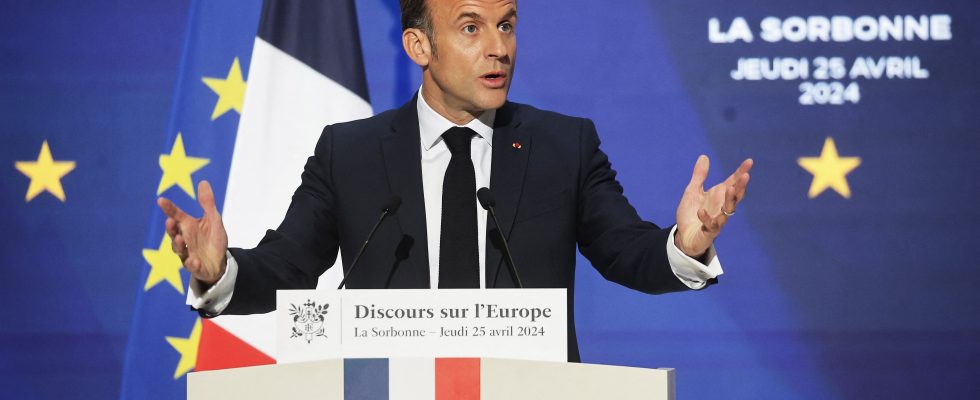There is no magic money. And yet, Emmanuel Macron still wants to believe it. Difficult to accept withdrawal. While the Head of State defends budgetary sobriety in France – the word rigor is taboo! –, he now calls for untying the purse strings at European level. “The European budget remains far too weak on its own […] We must therefore double the financial capacity for joint action. Does this involve shared debt? By the European stability mechanism, invented in 2012, during the sovereign debt crisis but underused today? By more mobilization of the European Investment Bank? I don’t want to preempt the debate, but we have to have it!”, he explained at length in an exclusive interview with L’Express.
If Emmanuel Macron’s diagnosis of the European situation is correct – the weakness of the EU’s financial resources – his radical proposals are open to question. Because before talking about a new joint loan, we still need to find the means to repay the previous one. However, today, nothing has been done and the divisions within the 27 member states are deep. A bomb which could well explode in the face of the next European Commission, which will be responsible for drawing up the contours of the future European budget.
Small flashback: in July 2020, at the end of the first confinement, the 27 agreed to launch a large joint loan of 750 billion euros to heal the wounds of the pandemic, avoid an economic collapse and prepare for the future. A historic breakthrough since the “frugal” members of the European club, first and foremost Germany, had always refused the idea of these famous Eurobonds. But, at the time, European presidents and heads of government also agreed on another point: no additional contribution from States to repay this loan. The European Union will therefore have to find its own resources. While the money should continue to be paid until 2026, the EU must start repaying these creditors from 2028… and for 30 years! Or 25 billion euros each year, according to estimates from the European Commission. “A considerable sum given the financial resources of the EU,” confirms a senior Commission official.
Where to find the money if we don’t want to truncate the budgets of the common agricultural policy or those of the structural funds? Among the solutions put forward: the creation of a minimum tax on multinationals, the marking of the carbon tax at the borders or a levy on the exchange of emission quotas. Problem: in four years, the 27 have not made progress on any of these tracks. And new, often absurd ideas have been added, such as a tax on food waste, another on electronic waste, income in cryptocurrencies or a tax on companies still practicing salary differences between men and women… Like what in Europe, we don’t have money, but we have ideas.
